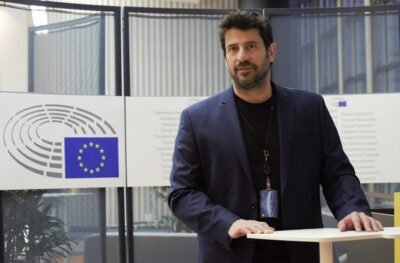Belgium, (Brussels Morning Newspaper) The time has finally come for the EU to properly support cultural creators. Following recent legislation such as the 2019 Copyright Directive dedicated to the online enforcement of authors’ and artists’ intellectual property rights and remuneration, we are now tackling the equally important issue of social rights and working conditions.
Last October, the European Parliament opened a new chapter in the fight for a fair labor environment in the Cultural and Creative Sectors (CCS) by adopting its “Resolution on the situation of artists and the cultural recovery in the EU” by an overwhelming majority. I am convinced that in retrospect it will be regarded as a historic milestone – for both its ground-breaking content and its broad consent across political groups.

At the core of the resolution is our call on the European Commission to propose a “European Status of the Artist” which will establish a desperately needed common EU framework for working conditions and minimum standards in the CCS across all Member States – something that cultural stakeholders had been demanding for a long time.
Apart from that, the resolution claims significant improvements regarding cross-border mobility, notably the removal of existing barriers on visa issues, taxation, social security, and the mutual recognition of qualifications and diplomas. The fight for fair contracts – especially concerning digital exploitation – and for artistic freedom are further important issues. Above all, not only does the Parliament recognize the pandemic’s disastrous impact on the overall situation of artists, but also explicitly acknowledges the precariousness of their status even before Covid-19, deriving from the non-standard nature of their working conditions, social security, and income. As terrible as the pandemic-related restrictions were, they did put CCS issues more into the focus of society and politics.
As the Left group’s shadow rapporteur for the resolution, I am glad that most of my 70 amendments to the draft report – some inspired by the #MeToo movement in Greece – were incorporated in the final text, covering crucial aspects such as social security systems, a safeguarded minimum income for all artists, gender equality also in decision-making positions, and the creation of a common European code of conduct to ensure the safety of artists and protect them from any form of harassment, violence, and abuse of power. Being a professional author and performer myself for more than two decades, I am aware of the numerous shortcomings and challenges of the CCS – and consequently even more committed to fighting for equal rights and chances for cultural creators and for an overall well-balanced ecosystem that leaves no one behind.
Besides this important resolution, I have been working on several issues that are among my personal priorities. I am a strong proponent of the above-mentioned Copyright Directive and especially its article 18 which entitles authors and performers “to receive appropriate and proportionate remuneration” – this is a crucial legislative element for the CCS to successfully transition to the digital era.
I have taken repeated action to put the Member States and the Commission under pressure to finally transpose the full directive into national law. Furthermore, in the context of post-pandemic recovery, alongside CCS stakeholders and many colleagues in the Parliament I have been pushing for a 2% earmarking of the “Recovery and Resilience Facility” (RRF), and in each Member State. Unfortunately, the European Parliament is still in an institutionally weak position when it comes to money, and the 2% goal was not achieved.
It is therefore even more important to build broad and strong coalitions. That is why, in February 2020, I co-founded the Cultural Creators Friendship Group (CCFG) – an informal coalition of currently 27 Members of the European Parliament from 6 political groups and 14 different countries – over which I currently co-preside as a Board member. The CCFG has already proven to be a very useful informal forum for MEPs during legislative processes and for many public activities, while at the same time serving as a one-stop-shop for CCS stakeholders who need natural allies in the European institutions.
For culture to find its proper place in EU politics and policies – bearing in mind that there is no immediate competence in this area at the Union level – a horizontal integration is required which to achieve is one of my main political priorities. The EU can accomplish a real and sustainable improvement for cultural creators only with a coordinated approach that reaches beyond mere cultural policies. What we need in the long term is a coherent European Strategy for Culture – the European Status of the Artist can only be the next step towards it.




